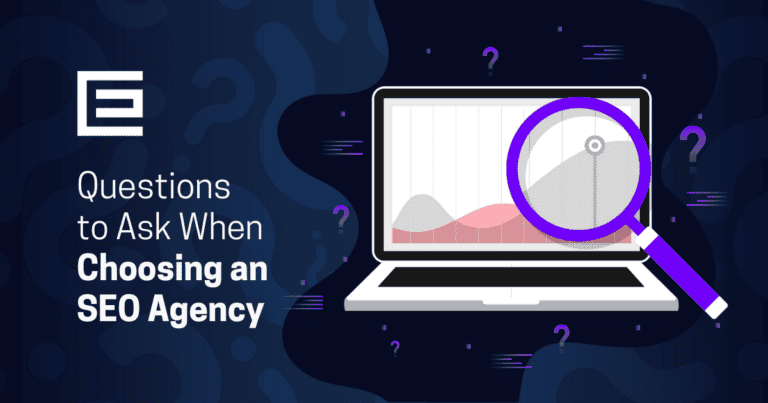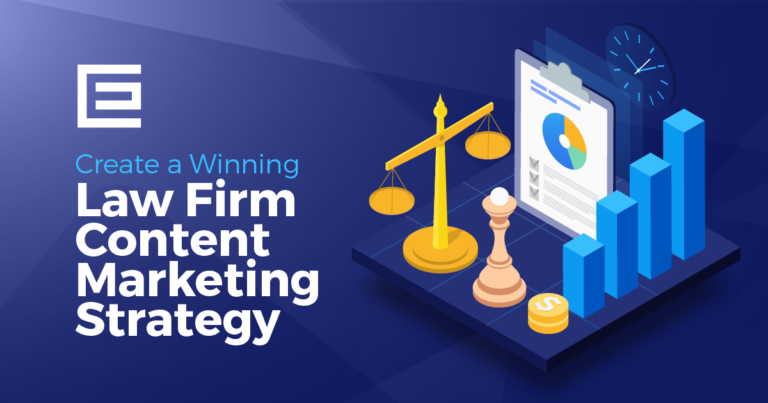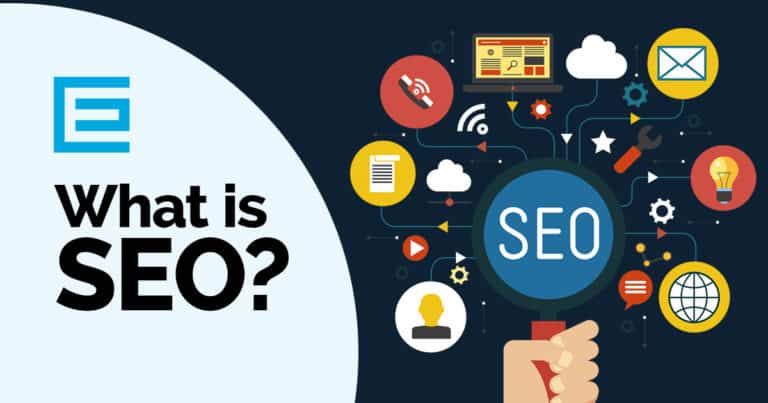If you are a personal injury lawyer, then you know that online marketing is essential to the success of your business. In order to attract new clients, you need to have a website that is optimized for SEO. In this blog post, we will discuss SEO for personal injury lawyers and provide some tips for optimizing your website for search engines. We will also provide some helpful resources that you can use to improve your law firm’s digital marketing strategy.
- 1The Basics Of Personal Injury Law Firm Marketing
- 2What Is SEO?
- 3SEO for Personal Injury Lawyers: The Basics
- 4SEO Factors That Influence Your Website’s Ranking
- 5How Search Engine Optimization Can Help Personal Injury Attorneys
- 6How Is Law Firm SEO Different From A Standard Marketing Strategy?
- 7Local SEO For Personal Injury Lawyers
- 8The Role Of Content In Personal Injury Law Firm Marketing
- 9Link Building And Personal Injury Lawyer SEO
- 10What Does A Personal Injury Law Firm’s Marketing Plan Look Like
- 11Frequently Asked Questions
The Basics Of Personal Injury Law Firm Marketing
A successful law firm marketing campaign should target potential clients in as many of the potential search results as possible with a result matching the area of the “sales funnel” that a prospect is in. An injury lawyer’s approach to marketing should utilize multiple strategies such as search engine optimization (SEO), content marketing, local SEO, social media, and online advertising.
The Anatomy Of A Google Search
To showcase the varied locations (and chances) where a law firm can be visible, it’s important to analyze an example search result. Consider that each spot is autonomous and would require tailored optimizations in order to display in these areas.
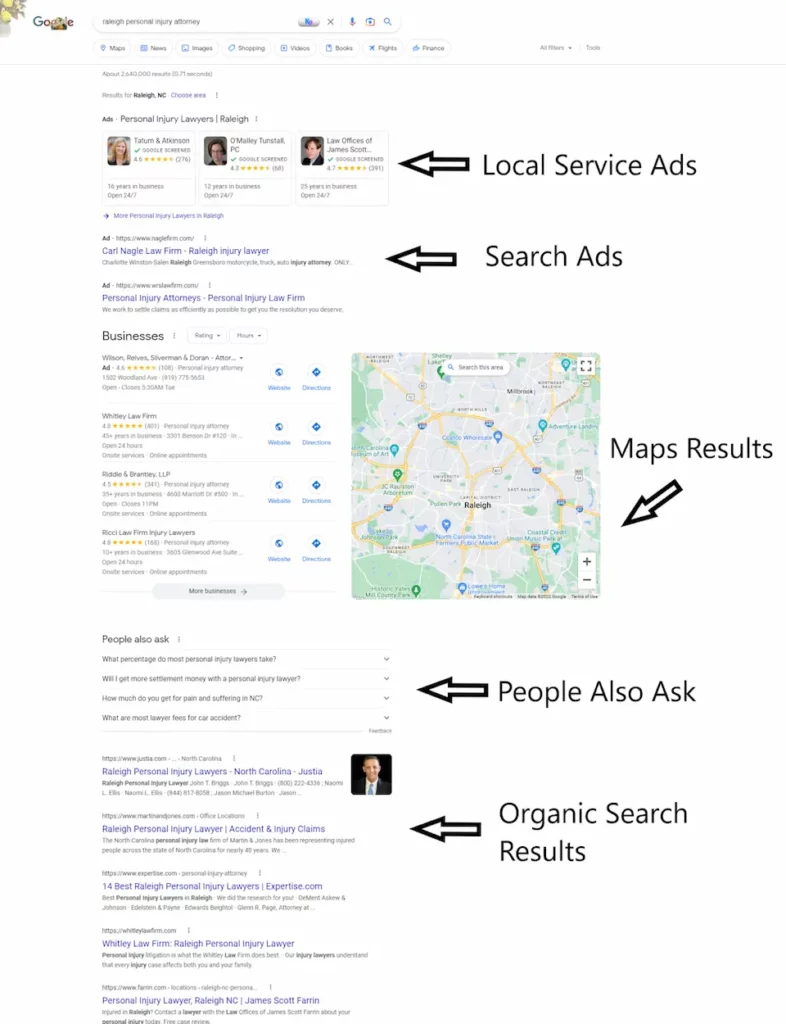
Local Service Ads
Local Service Ads (LSAs) are Google’s new way of representing local businesses. These ads appear on the top of a search result and are designed to provide the user with more immediate information such as pricing, ratings, availability, etc. Law firms should strive to get their LSAs in front of potential clients by optimizing credibility signals such as reviews, ratings, and more.
Classic Google Ads
Google Ads is the traditional paid advertising solution for law firms. These ad types appear at the top, bottom, and middle of search results.
Data shows that 67% of all high commercial intent keyphrases go to a paid ad.
Law firms should strive to have a presence in all three positions by creating highly targeted campaigns, bidding strategies, and ad copy.
Google Maps & Local Finder Results
A law firm’s presence in Google Maps and the local finder can be a powerful tool for improving visibility. Optimizing the entry in these areas will help ensure that potential customers are able to easily access your contact information or even schedule an appointment directly from their search results. Additionally, content such as reviews and ratings should be regularly monitored in order to maintain a positive impression of your law firm.
People Also Ask
The “People Also Ask” section of a search result can be an excellent source of information for law firms. Answering these questions with helpful content helps to build trust in the firm and provides potential customers with valuable information.
Organic Results
Organic results are the old-fashioned way of getting visibility for your website. Optimizing for organic keywords should always be a priority when developing a marketing strategy as this ensures that potential clients will find your website organically without needing to click on any paid ads or sponsored links. Law firms should strive to create comprehensive content such as blog posts, articles, infographics, and more in order to improve their rankings in relevant searches.
What Is SEO?
SEO, or search engine optimization, is a process that can be used to improve the visibility of your website in search engines. By optimizing your website for SEO, you can improve your ranking in search engine results pages (SERPs). This can help you to attract more visitors to your website and ultimately leads to more business.
There are a number of factors that can impact your SEO, including the content on your website, the structure of your website, and the way that people interact with your website. In order to optimize your website for SEO, you need to understand how these factors work together.
Content is one of the most important aspects of SEO. The content on your website should be keyword-rich and relevant to your business. In addition, your content should be well-written and informative. If you have a blog, make sure to include keywords in your blog posts as well.
The structure of your website is also important for SEO. Your website should be easy to navigate and organized in a way that makes sense for users. This will help search engines to index your website correctly and improve your ranking in search results.
Finally, the way that people interact with your website can impact your SEO. If users are able to find what they are looking for easily on your website, they are more likely to stay on your site and continue using it. This will help to improve your ranking on search engine results pages.
SEO is an important tool that can be used to improve the visibility of your personal injury law firm website. By understanding how SEO works and implementing it on your site, you can attract more visitors and ultimately generate more business.

SEO for Personal Injury Lawyers: The Basics
Personal injury lawyers who want to improve their website’s ranking in search engine results pages (SERPs) must first understand how SEO works. Search engines like Google use algorithms to determine which websites to rank for each search query.
To improve your website’s ranking, you’ll need to do two things: (i) understand what factors influence your website’s ranking and (ii) optimize your website accordingly.
SEO Factors That Influence Your Website’s Ranking
Search engine algorithms are constantly changing, which makes it difficult to determine which factors influence your website’s ranking. However, there are some general principles that remain constant.
Website Design
Additionally, search engines also consider a website’s design when determining its ranking. A well-designed law website that is easy to navigate and use is more likely to rank higher than a poorly designed website. Another important factor to consider is your website’s load time; websites that load quickly are more likely to rank higher than those that take longer to load.
Website Structure
The structure of a website can have a significant impact on its search engine rankings.
Search engines crawl websites in order to index them and determine their relevance to a given query. If a website is poorly structured, it can be difficult for a search engine to understand its content and properly index it.
As a result, the website may appear lower in the search results. Conversely, a well-structured website is likely to rank higher in the search results.
A website’s structure includes both its physical structure (the way its pages are linked together) and its logical structure (the way its content is organized). Both of these factors can affect how easily a search engine can crawl and index a website.
In order to optimize your website for search engine rankings, it is important to ensure that it has a well-designed structure.
On-Page Optimizations
On-page optimization is the process of making sure that your website’s individual pages are as search-engine-friendly as possible.
This includes things like choosing the right keyword phrases to target, making sure your titles and headings are effective, and ensuring that your content is relevant and useful.
While on-page optimization is just one part of a successful SEO strategy, it is an important part of the puzzle. If your website’s individual pages are not optimized, it will be difficult for them to rank well in the search engines, regardless of how strong your other SEO efforts may be.
As a result, taking the time to ensure that your website’s on-page optimization is up to par is essential if you want to achieve high SEO rankings.
Website Content
Google has stated that content is still king when it comes to SEO. In other words, websites with high-quality content tend to rank higher than those with low-quality content. This is especially true for personal injury practice websites.
When it comes to a personal injury attorney, the quality of your content is even more important than the quantity.
In addition to ensuring that your website has high-quality content, you should also make sure that your website is updated regularly. Google favors websites that are up-to-date, and adding new content on a regular basis is one of the best ways to ensure that your website meets this criterion.
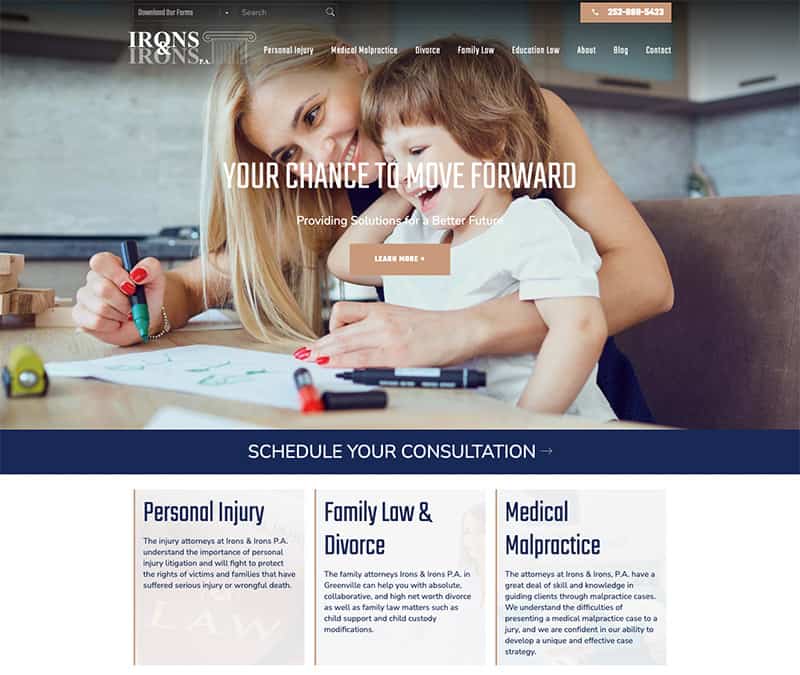
How Search Engine Optimization Can Help Personal Injury Attorneys
In a hyper-competitive market, it is essential for personal injury attorneys to be visible to potential clients. Search engine optimization (SEO) can help to ensure that your website appears at the top of search engine results, making it more likely that people in need of your services will see it.
While there are many factors that contribute to SEO, some of the most important include keyword research, backlinking, and creating fresh content. By investing in SEO, personal injury attorneys can give themselves a significant advantage in the quest for new clients.
SEO Is An Investment With Long Term Rewards
When it comes to marketing your personal injury firm, there is no silver bullet. Paid advertising may bring in quick results, but it is not a sustainable strategy. Social media may be free, but it requires significant time and effort to build a following. Search engine optimization, on the other hand, is an investment that can pay off for years to come.
By optimizing your website for the right keywords, you can attract a steady stream of targeted traffic without spending a dime on advertising. What’s more, once you rank highly for a particular keyword, it can be very difficult for your competitors to overtake you.
Of course, SEO is not a quick or easy fix. It can take months or even years to achieve results. But if you’re looking for a sustainable, long-term solution for marketing your personal injury firm, SEO is the way to go.
SEO Levels The Playing Field
The internet has completely changed the landscape of marketing for personal injury attorneys. In the past, the vast majority of clients were won through word-of-mouth or referral programs.
While these methods are still important, they no longer provide the same level of reach as they once did. Today, potential clients are far more likely to turn to the internet when they are looking for an attorney.
And that’s where SEO comes in.
By optimizing their website for relevant keywords, personal injury attorneys can ensure that their website appears at the top of search engine results pages – regardless of their budget. This level playing field means that any attorney, regardless of their size or budget, can compete for clients online. And that’s good news for both attorneys and consumers alike.
Easily Measure Results From SEO
In order to properly measure the results of SEO, it is important to track both the number of website visitors and the number of inquiries or leads generated from the website.
For personal injury attorneys, this can be easily accomplished by setting up goals in Google Analytics and/or using call tracking software.
These tools will allow you to see how many people are coming to your website as a result of your SEO efforts, and how many of those visitors are taking action on your site.
By tracking these metrics, you can effectively measure the ROI of your SEO campaigns and make necessary adjustments to maximize results.
Need help implementing these digital marketing trends into your strategy?
Our marketing experts can help! Get in touch by calling 919-341-8901 or scheduling a consultation.
How Is Law Firm SEO Different From A Standard Marketing Strategy?
SEO for law firms is quite different from your average SEO campaign. For one, the competition is much higher. When you’re marketing a law firm, you’re not just competing with other businesses in your industry, you’re competing with every other law firm, and their marketing agency, in the country. That’s why it’s so important to have a strong SEO strategy in place.
In addition, law firm SEO is all about generating leads. You need to ensure that your website appears at the top of the search results for relevant keywords and phrases so that potential clients can find you easily.
This means that your content needs to be highly relevant and keyword-rich.
Finally, law firm SEO requires ongoing work. Once you’ve achieved a high ranking, you need to maintain it by regularly producing fresh content and making sure your site is kept up to date.
By contrast, a standard marketing campaign is generally more concerned with branding and awareness-raising rather than generating leads.
Personal Injury Firms Fall Into The “YMYL” Google Category
As anyone who has been injured in an accident knows, the aftermath can be both physically and emotionally devastating. In addition to managing pain and recovery, accident victims also have to deal with mounting medical bills, lost income, and the stress of dealing with insurance companies.
Fortunately, there are personal injury law firms that can help accident victims get the compensation they deserve. However, these firms face a unique challenge when it comes to SEO. Google classifies websites that fall into the “Your Money or Your Life” category as high risk, which can make it difficult for personal injury law firms to rank highly in search results.
As a result, many personal injury law firms must take special measures to ensure their website is focused on what many in the industry call “E-E-A-T”.
What Is E-A-T And How Does It Relate To A Personal Injury Lawyer
E-E-A-T stands for experience, expertise, authoritativeness, and trustworthiness. It’s a set of guidelines that was first introduced by Google in 2014 as a way to help improve the quality of search results. And while it was originally designed for website owners and content creators, it’s also relevant to personal injury attorneys.
Why is that?
Well, personal injury law is a highly competitive field, and potential clients are often looking for the best lawyer to handle their cases. By optimizing your website for E-E-A-T, you can improve your chances of ranking higher in search results and ultimately get more clients.
So how do you optimize your personal injury law firm website for E-E-A-T?
Here are a few tips:
- Make sure your website is up-to-date and accurate. This means having correct contact information, office locations, practice areas, and attorney biographies. Outdated information will not only turn off potential clients but can also hurt your SEO.
- Write clear and concise content that’s easy to understand. Your website content should be free of errors and clearly explain what you do and how you can help potential clients.
- Build links to reputable websites. Links from high-quality websites will not only improve your SEO but also help build trust with potential clients.
- The “About Us” page includes information about your experience and qualifications.
- Include testimonials or reviews from past clients on your website. These can help show potential clients that you’re trustworthy and reputable.
- Make sure your website is designed in a way that’s user-friendly and easy to navigate.
By following these tips, you can improve your personal injury law firm website and get more clients. If you need help with SEO or online marketing, contact us today. We specialize in helping personal injury lawyers get more cases through effective digital marketing.
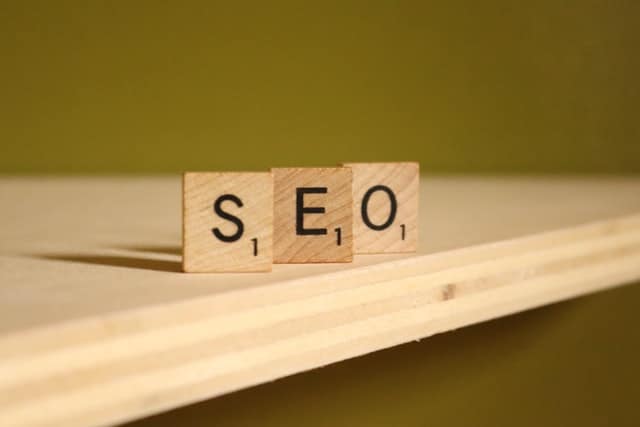
Local SEO For Personal Injury Lawyers
As a personal injury lawyer, it’s important to make sure that you’re visible to potential clients in your local community. One way to do this is through Local SEO. Local SEO is the process of optimizing your online presence to make it easier for people in your geographical area to find you when they’re searching for relevant keywords.
This can be achieved through a number of methods, such as creating local citations, claiming and optimizing your Google My Business listing, and building backlinks from relevant websites.
Here are some additional things you can do to optimize your personal injury law firm website for local SEO:
- Include testimonials or reviews on your website
- Make sure your website is mobile-friendly
- Use keyword-rich titles and descriptions
- Include your location in your titles and descriptions
- Add photos and videos to your website
- Make sure your website is fast and easy to navigate
- Ensure that your website is secured with an SSL encryption
By following these tips, you can improve your local SEO and get more visibility for your personal injury law firm.
Local Services Ads
While Local Service Ads are generally outside the scope of “SEO”, creating as large of a footprint as possible is vitally important for many law firms.
Local Service Ads are a new Google advertising product that allows businesses to promote their services to people in their local area. They work by showing your business as a sponsored result on Google Maps and Search when people in your area search for relevant keywords.
Local Service Ads can be a great way to get more visibility for your personal injury law firm. They appear in search results above Google ads and allow you to target potential clients who are already looking for a lawyer in their area. And since they appear as sponsored results, they have a higher click-through rate than traditional Google ads.
The Role Of Content In Personal Injury Law Firm Marketing
If you’re a personal injury lawyer, then you know that content is key when it comes to marketing your law firm. After all, without compelling and informative content, potential clients will have no reason to visit your website or contact your firm. Fortunately, there are some simple things you can do to make sure your website’s content is optimized for both search engines and potential clients.
Here are a few tips:
- Make sure all of your pages have unique and keyword-rich titles.
- Use headings and subheadings to break up your text and make it easier to read.
- Use bullet points or lists whenever possible.
- Include images, videos, or infographics on your pages (and make sure to optimize them for SEO).
- Write compelling meta descriptions for each page.
- Regularly update your website’s content with fresh, original articles.
The Importance of Content in Personal Injury Law Firm Marketing
If you’ve ever been injured in an accident that wasn’t your fault, then you know how important it is to have a good personal injury lawyer on your side.
But how do you find a reputable personal injury law firm? And once you’ve found one, how do you know if they’re any good?
The answer to both of these questions is content.
A personal injury law firm’s website should be packed with useful, well-written content that covers all the basics of personal injury law.
This includes articles on topics like how to choose a personal injury lawyer, how to build a strong case, and what to expect from the personal injury claims process.
By providing potential clients with this valuable information, a personal injury law firm can demonstrate its expertise and build trust with potential clients. And that’s essential for generating leads and winning new business.
How to Optimize Your Website’s Content for SEO
If you’re running a law firm, it’s essential to make sure your website content is optimized for search engine optimization (SEO).
There are a number of steps you can take to optimize your site’s content for SEO.
First, research the keywords that potential clients are likely to use when searching for a law firm, and incorporate these keywords throughout your site’s content.
Secondly, make sure that your content is well-written and engaging, as this will encourage users to stay on your site for longer and improve your click-through rate.
Finally, ensure that your site is updated regularly with fresh content; this will show search engines that your site is active and relevant, helping you to achieve a higher ranking.
By taking these steps, you can help to ensure that your law firm’s website is visible to those who need it.
Tips for Writing Compelling and Informative Law Firm Web Content
When it comes to writing compelling and informative content for a personal injury attorney website, there are a few things to keep in mind. Above all else, the content must be well-written and free of errors. It should also be informative, providing potential clients with the information they need to make an informed decision about hiring a personal injury lawyer.
- First, it’s important to focus on the needs of the client. What are they looking for in an attorney? What kind of information will be most helpful to them? By focusing on the needs of the client and providing valuable information, you can set yourself apart from the competition and generate leads.
- Second, it’s important to make sure that the content is well written and free of errors. This will help to build trust with potential clients.
- In addition to being well-written, informative, and free of errors, law firm web content must also be optimized for search engines. This means including relevant keywords throughout the content. Keywords are the words and phrases that people use when searching for information online. By including relevant keywords in your law firm’s web content, you can help ensure that your website appears in the search results when potential clients are looking for a personal injury lawyer.
- Finally, it’s important to ensure that the content is updated regularly. This will show potential clients that the attorney is keeping up with the latest changes in the law and is committed to providing the best possible service.
By following these tips, personal injury attorneys can create compelling and informative content that will help to attract new clients and grow their practice.
The Role of Blogging in Personal Injury Law Firm Marketing
Blogging can be a very effective tool for personal injury law firms looking to expand their marketing efforts.
By creating high-quality blog content, firms can attract readers who are interested in topics related to personal injury.
In addition, well-written blog posts can help to build trust and credibility with potential clients.
Furthermore, blog content can be easily shared on social media, giving law firms a wider platform to reach even more readers. As a result, blogging can be an extremely effective way for personal injury law firms to reach more potential clients.
How to Generate Leads with Content Marketing
If you’re a personal injury lawyer, then you know that generating leads is essential to your success. And while there are many ways to generate leads, content marketing is one of the most effective.
Content marketing is a way to attract and retain customers by creating and sharing valuable content. When done correctly, it can generate a lot of leads for your law firm. In fact, 78% of marketers say that content marketing has led to more qualified leads.
So how can you use content marketing to generate leads for your personal injury law firm? Here are a few tips:
- Create valuable content. Your first step is to create valuable content. This could be anything from blog posts to eBooks to infographics. Whatever you choose, make sure it’s interesting and useful to your target audience.
- Share your content on social media. Sharing your content on social media platforms like Facebook, Twitter, and LinkedIn will help get it in front of more people and potential clients.
- Use paid advertising. Using paid advertising can be done on social media or through services like Google Ads and can get your content in front of more people.
By following these tips, you can generate more leads for your personal injury law firm with content marketing. So start creating and sharing valuable content today!
Link Building And Personal Injury Lawyer SEO
Link building is an important SEO strategy for any business, but it’s particularly important for personal injury lawyers. In simple terms, a backlink is an incoming hyperlink from one web page to another. Backlinks are also known as inbound links or incoming links and play a key role in helping search engines determine the ranking of websites. Link building can help personal injury lawyers increase their website’s visibility by creating more natural links from external sources that point back to their website. This helps search engine algorithms recognize the lawyer’s site as authoritative, resulting in higher rankings on SERPs.
Benefits of Link Building
Link building is the internet’s version of a word-of-mouth recommendation. By creating links to your web page from other websites, you are increasing the chances that more people will find it and visit it. This is a great way to increase traffic and build up your online presence.
One of the key benefits of link building is that it can help you rank higher in search engine results pages (SERPs). Search engines take into account the number and quality of links pointing to a website when determining how high it should rank for relevant queries. Link-building tactics can help you increase your visibility in SERPs, as well as helping to drive more organic traffic to your website.
Steps in a Successful Link Building/Personal Injury SEO Strategy
Press releases offer an excellent way for personal injury lawyers to build a high-quality link profile and lift their sites above the competition. By using optimized press releases and targeted media outreach through reputable distribution services, attorneys can ensure that their content is seen by the right people. Additionally, including links back to their website in the press release further increases visibility and strengthens the overall link profile of the site.
Blog post link insertion is another great way to build a high-quality link profile for a website. Placing hyperlinks from related blogs to content on a client’s website helps strengthen the value of the personal injury SEO content and drives qualified leads back to their page. For example, if there is a blog discussing something relevant to one of your attorney’s services or cases, you can include a link back to them in your post. This helps draw additional attention to their page and gives readers an easy access point directly from the blog post.
Finally, citation links are an invaluable tool when building a strong link profile for our client’s websites. These types of links come from reliable sources such as industry-specific directories or well-known review sites like Expertise or SuperLawyers. Having these types of highly respected sources linking back to our client’s pages further adds credibility and trust with potential customers looking for information about them online.
What Does A Personal Injury SEO Plan Look Like
The personal injury law firm’s SEO marketing plan should include the following:
- An overview of your website and the keywords you are targeting
- An outline of your content marketing strategy, including the types of content you will produce and how you will promote them
- A description of your paid advertising strategy and how you will measure its effectiveness
- Details on how you will track leads generated from content marketing and paid advertising, and how you will follow up with them
- Your social media strategy, including the platforms you will use and how you will engage with your audience
- An overview of your email marketing campaign, including the types of emails you will send and how often you will send them
- A plan for tracking the results of your SEO marketing efforts so that you can adjust your strategy as needed.
This is just a basic outline of what should be included in a personal injury law firm’s SEO marketing plan. For more detailed advice, contact a personal injury lawyer marketing specialist.
Frequently Asked Questions

Do lawyers Need SEO?
We believe that any business that wants to be successful needs to invest in SEO.
This is especially true for lawyers, who need to make sure potential clients can easily find them online.
In a competitive market, lawyers need to do everything they can to stand out, and SEO is an essential part of that. By optimizing their website for search engines, lawyers can ensure that their practice appears at the top of search results.
This not only makes it more likely that potential clients will find them, but also that they will trust their services.
In a field as competitive as law, SEO is a necessity, not a luxury. Those who fail to invest in it are at a serious disadvantage.
Why is SEO important for lawyers?
As the legal landscape becomes increasingly competitive, lawyers are looking for ways to stand out from the crowd.
One important way to do this is through search engine optimization (SEO). By optimizing their website and online content for relevant keywords, lawyers can ensure that their firm appears at the top of search engine results pages (SERPs).
This can help them to attract more visitors to their website, and ultimately convert more leads into clients. In addition, SEO can also help lawyers to build trust and credibility with potential clients.
By providing relevant and informative content, lawyers can position themselves as experts in their field. As a result, SEO is an essential tool for any lawyer looking to stay ahead of the competition.
How much do law firms spend on SEO?
Law firms are increasingly investing in SEO to ensure they are visible online and attract potential clients.
But how much do these efforts cost?
A recent study by the American Bar Association found that the average law firm spends $2,000 per month on SEO, with smaller firms spending around $1,000 and larger firms up to $5,000.
The study also found that SEO is most effective when combined with other marketing efforts, such as content marketing, paid ads, and social media.
We also see similar budgets with TheeDigital’s law clients. The deciding factor for most firms is to decide how fast they want to see results.
SEO can take time to show results, so it’s important to be patient and consistent with your efforts. If you’re looking for immediate results, paid advertising may be a better option.
Overall, SEO is an essential part of any law firm’s marketing strategy, and those who fail to invest in it are at a serious disadvantage.
What does SEO mean in law?
SEO, or search engine optimization, is the process of improving the visibility and ranking of a website in search engine results pages (SERPs).
In other words, it is the process of making a website more “friendly” to search engines in order to improve its chances of appearing higher in SERP rankings.
For law firms, SEO is an important part of online marketing and business development. By optimizing their website for relevant keywords and phrases, law firms can increase their chances of being found by potential clients who are searching for legal services online.
In addition, a well-optimized website can also help to build trust and credibility with potential clients.
While there is no guarantee that a law firm’s website will achieve a top spot in SERP rankings, implementing effective personal injury SEO strategies can certainly improve its chances.
Contact TheeDigital For All Of Your Personal Injury Law Firms Marketing Needs
If you’re looking for a full-service marketing company that can help you with your SEO for personal injury attorneys, then contact TheeDigital today. We have years of experience in this field and can help you get the results you need to grow your practice.
Need help implementing these digital marketing trends into your strategy?
Our marketing experts can help! Get in touch by calling 919-341-8901 or scheduling a consultation.
Tags: Legal Marketing

